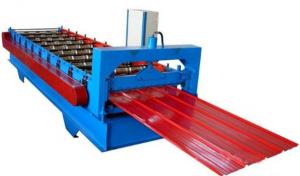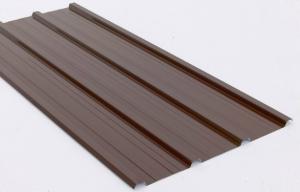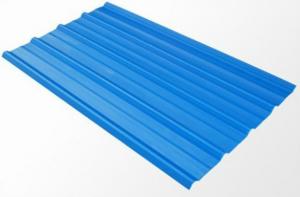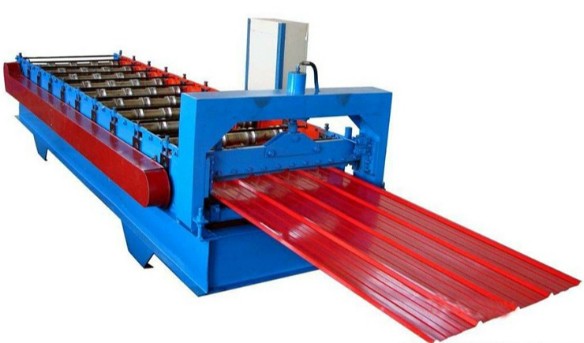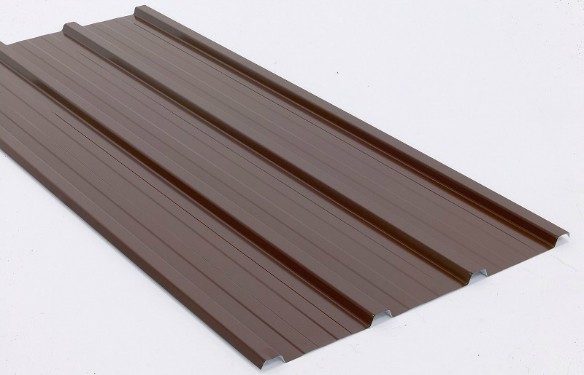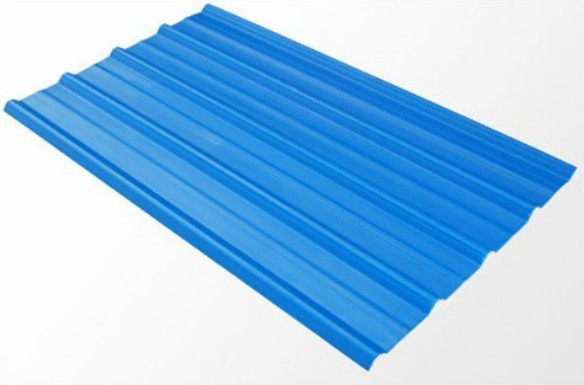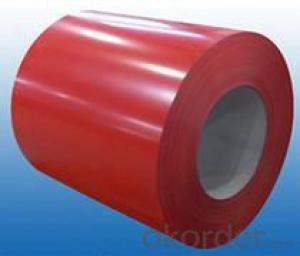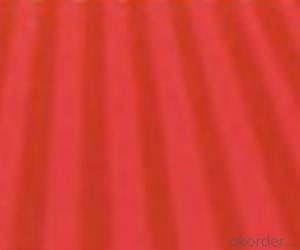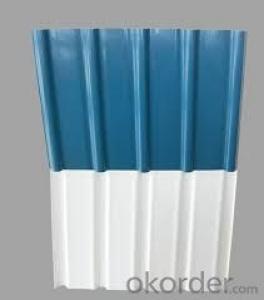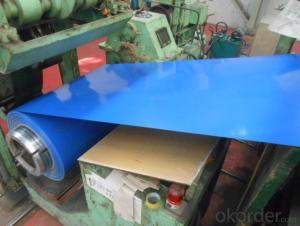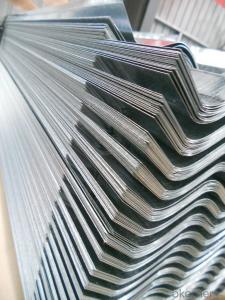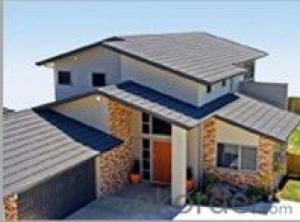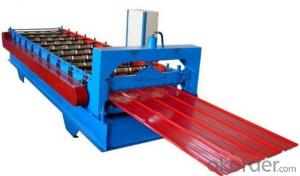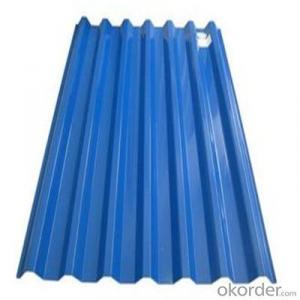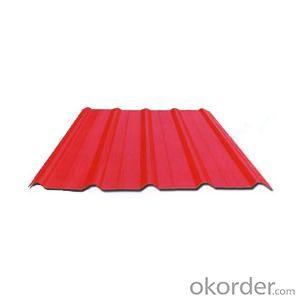Prepainted Galvanised Corrugated Sheet
- Loading Port:
- China Main Port
- Payment Terms:
- TT OR LC
- Min Order Qty:
- -
- Supply Capability:
- -
OKorder Service Pledge
OKorder Financial Service
You Might Also Like
Product Description:
We specialize in manufacturing galvanized steel coil, galvalume steel coil, prepainted steel coil and galvanized corrugated sheets.
Nowadays our company has grown up to a collectivized company . We are grateful to the cooperation partner who`s grown with us all the way. We hope we could make more friends from all over the world. Under the joint efforts of both sides we believe that we will continue to achieve win-win results based on mutual trust and mutual support.
Quick Details
| Standard: | Grade: | Thickness: | |||
| Place of Origin: | Brand Name: | Model Number: | |||
| Type: | Technique: | Surface Treatment: | |||
| Application: | Special Use: | Width: | |||
| Length: | Based Material: | Material: | |||
| Zinc Coated: | Spangle: | Shape: | |||
| Galvanized Type: | Business: | Payment Terms: | |||
| Packaging: | Delivery Detail: |
Packaging & Delivery
| Packaging Detail: | Fully seaworthy export packing with paper tube Each coil is wrapped in water-proof paper. |
| Delivery Detail: | about 15 days after the deposit if the quantity below 500 ton. |
Specifications
Corrugated gi/gl/ppgi Sheet
1.Thickness: 0.13mm-1.0mm
2.Width:750mm-1250mm
3. z40-z150g/m2
4.ISO 2000,SGS
- Q: How do steel sheets compare to other materials, such as aluminum or copper?
- There are several advantages to using steel sheets instead of materials like aluminum or copper. Firstly, steel is known for its exceptional strength and durability, making it able to withstand heavy loads and resist impacts better than aluminum or copper. This makes steel sheets perfect for applications that require high strength and structural integrity, such as in construction or the automotive industry. Furthermore, steel sheets have a higher melting point than aluminum or copper, meaning they can withstand higher temperatures without deforming or melting. This makes steel sheets suitable for applications that involve exposure to high temperatures, like in manufacturing processes or engine components. Additionally, steel sheets have excellent corrosion resistance properties. They can be coated with protective layers like zinc or chromium to enhance their resistance to rust and corrosion. In contrast, aluminum and copper are more prone to corrosion, especially when exposed to certain environments or chemicals. This makes steel sheets the preferred choice for outdoor applications or structures that need long-term durability. Another advantage of steel sheets is their cost-effectiveness. Steel is relatively cheaper compared to aluminum or copper, especially when considering its strength and durability. This makes steel sheets a more economical choice for various applications where cost is an important factor. However, it is important to note that aluminum and copper also have their own advantages. Aluminum is lightweight and has excellent thermal conductivity, making it suitable for applications that require lightweight materials or efficient heat transfer. Copper, on the other hand, has superior electrical conductivity, making it ideal for electrical wiring or components. In conclusion, steel sheets offer exceptional strength, durability, corrosion resistance, and cost-effectiveness compared to aluminum or copper. However, the choice of material ultimately depends on the specific requirements of the application, such as weight, thermal or electrical conductivity, and environmental factors.
- Q: What is the difference between a steel strip and a coil? The steel strip is flat steel, and the steel coil is made of steel. Is that correct?
- The volume is relatively wide. In addition, flat steel is usually hot-rolled out of long strip steel, fixed length 5 and 5.5,6 meters range, steel coil is Kaiping Chang 12501500, length 2.5 meters, 4 meters, 6 meters, ranging from steel plate
- Q: What are the different alloys used in steel sheet production?
- Some of the different alloys used in steel sheet production include carbon steel, stainless steel, galvanized steel, and alloy steel.
- Q: Can steel sheets be used for storage tanks or containers?
- Yes, steel sheets can be used for storage tanks or containers. Steel is a durable and strong material that can withstand high pressure and is resistant to corrosion, making it suitable for storing various substances and materials.
- Q: What are the different types of steel coatings for sheets?
- There are several different types of steel coatings for sheets, including galvanized, galvannealed, aluminized, and stainless steel coatings.
- Q: Are steel sheets suitable for decorative screens or partitions?
- Yes, steel sheets are suitable for decorative screens or partitions. They offer durability, strength, and a sleek aesthetic that can enhance the overall design of any space. Additionally, steel sheets can be customized with various patterns, textures, and finishes, allowing for endless creative possibilities in creating decorative screens or partitions.
- Q: Are the steel sheets resistant to oil or grease?
- Yes, steel sheets are generally resistant to oil or grease. Steel is known for its durability and resistance to various chemicals, including oil and grease. The smooth surface of steel sheets makes it difficult for substances like oil or grease to adhere to them, allowing for easy cleaning and maintenance. Additionally, steel sheets can be further treated or coated with protective materials to enhance their resistance to oil or grease if required.
- Q: Are steel sheets resistant to termites and insects?
- No, steel sheets are not resistant to termites and insects.
- Q: Are steel sheets prone to rusting?
- Yes, steel sheets are prone to rusting if they are not properly protected or coated with rust-resistant materials. Rust occurs when iron in the steel reacts with oxygen and moisture in the environment, leading to the formation of iron oxide, commonly known as rust.
- Q: What is the difference between a pre-annealed and full hard steel sheet?
- A pre-annealed steel sheet refers to a steel sheet that has undergone the annealing process, which involves heating the steel to a specific temperature and then cooling it slowly. This process helps to relieve internal stresses in the steel and improve its ductility and workability. As a result, pre-annealed steel sheets possess higher levels of formability and are easier to shape and manipulate compared to their non-annealed counterparts. On the other hand, a full hard steel sheet has not undergone the annealing process and retains its original hardness and strength. Full hard steel sheets are typically used in applications that require high strength, durability, and resistance to deformation. These sheets are more rigid and less ductile, making them suitable for applications where shape retention and stiffness are critical, such as in automotive components or structural supports. In summary, the main difference between pre-annealed and full hard steel sheets lies in their formability and strength characteristics. Pre-annealed steel sheets are more malleable and easier to shape, while full hard steel sheets offer higher strength and rigidity. The choice between the two depends on the specific requirements of the application and the desired balance between formability and strength.
Send your message to us
Prepainted Galvanised Corrugated Sheet
- Loading Port:
- China Main Port
- Payment Terms:
- TT OR LC
- Min Order Qty:
- -
- Supply Capability:
- -
OKorder Service Pledge
OKorder Financial Service
Similar products
Hot products
Hot Searches
Related keywords
